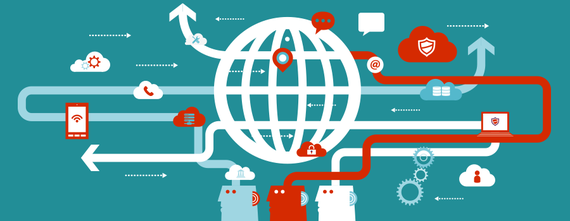Businesses have made significant strides in the last 40 years, identifying innovations that make serving the world's poorest profitable. Single-use packets developed by giants like Proctor and Gamble made fast-moving consumer goods affordable. Mobile technology leapfrogged conventional telecom in Africa, improving connectivity and reach. Capital inflows from micro-financing opened small business opportunities for billions. These innovations, and many others, have enabled multinational corporations to enter emerging economies and create profitable products and services at scale.
Although these innovations have unleashed markets, traditional for-profits have made two serious errors in serving the base of the pyramid (BOP).
Businesses aren't listening to consumers enough
Throughout the world, businesses engage their consumers in the process of developing new products and services, a mechanism known as co-creation. Co-creation can run a full spectrum of involvement: from asking someone who has purchased a product to take a survey to integrating real consumers in feature design, product testing, and launch.
Feedback systems for businesses working with the BOP, however, are rarely as sophisticated. The reason isn't hard to understand. Most companies serving the BOP operate on very thin margins and rely on products that serve high volumes in order to break even. Co-creation can be an expensive process and usually only includes a select group of "super users" who may or may not represent a broad base of consumers.
Research from the Aalto University School of Economics in Finland shows how important co-creation can be at the BOP, citing better understanding, increased legitimacy, improved access to informal value chains, and more opportunities to develop partnerships. Multinationals seem to understand the importance, but most fail to execute (and importantly, document) co-creation with BOP consumers. Companies of all sizes are failing to listen to individuals and, as a result, are missing out on opportunities to create what people in the BOP desperately need.
Businesses are listening to the market too much
In long-held wisdom from Adam Smith economists and MBAs, the free market will reward the companies who create what consumers need and punish those who fail to do so. In the long term, companies who create products that people want will find sales, profits, and growth opportunities, whereas companies who have unwanted products will lose sales to more suited organizations.
Implying that demand signifies a product or service is "good" is completely outdated. Consumers at every level of the pyramid are notorious for sacrificing future positive outcomes for the present. Ask anyone who has ever purchased a 610-calorie Mocha Cookie Crumble Frappuccino from Starbucks or the 1,730-calorie Triple Whopper from Burger King about the stomach ache they got later. It is also clear bad products sell by looking at the insatiable demand for mortgage-backed securities and credit default swaps that led the world into financial collapse in 2007.
The reverse, assuming that products that fail to be adopted are somehow "bad," or represent a broken business model, is just as ludicrous. This has been one of for-profit's biggest complaints against social enterprise and NGO development work. Ideological capitalists presume that if sustainable non-profits had something that people actually wanted, they would have no problem reaching millions of consumers and eliminating poverty in all its forms.
Both of these incorrect beliefs are still pervasive. Because consumers lack perfect information about the product they are selecting and about future consequences, because cultural norms may prevent adoption of otherwise beneficial products, and because regulatory or market barriers may prevent access, simplified free-market theories are misrepresenting the feedback companies read into their own quarterly earnings.
Knowing Your Customer Is More than Identity
For multinationals and social enterprise looking to serve the BOP with sustainable products, there is good news. For some time, global banks have implemented "Know Your Customer" or KYC standards. Historically, KYC has required identification procedures and compliance monitoring to help manage risk. Beyond financial services, though, truly knowing your customer is an obvious solution for any business looking to serve the BOP. Existing businesses have failed to understand why their consumers make the decisions they do. Modern behavioral economics research by brilliant minds including Dr. Richard Thaler, Dr. Sendhil Mullainathan and Dr. Eldar Shafir has begun to change that conversation.
However, business failures won't be fixed by academics. Businesses have the opportunity to sustainably solve massive problems if they listen the right way. In co-creation, businesses will need to avoid being too precise and letting individual opinions make strategy decisions for an entire continent. They will also need to avoid being too vague and using coarse profitability numbers to make product decisions for real families. Squeezed margins and higher risk premiums mean businesses who want to succeed in the BOP will need to find the Goldilocks combination that is just right.
